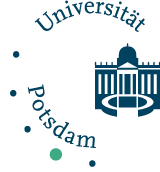Master's courses (outline)
Courses: "Modernization of the public sector"
In the thematic complex "Modernization in the Public Sector", selected topics on the management and control of public organizations and service provision are dealt with. The focus of the events held in this series is on the overarching analysis of reform movements and patterns as well as on management topics at the organizational interface of administration and on cross-organizational topics.
Basic Courses on Foundations of Public Management
The ability to lead an organization, make things happen, and achieve change are among the fundamental skills to contribute to the development of an organization. This course addresses a number of concepts that are used to lead organizations and shape change. The objective of this course is to provide you with an understanding of core issues and problems in the field of public administration management. You should be able to understand and integrate the special framework and characteristics of public administration for management and recognize basic concepts and models for analyzing the respective management issues. In the progress of the course, students should be familiar with, be able to classify, and be able to carry out practice-oriented problem formulations and analyses and scientific questions and analyses related to the subject area.
The course materials include conceptual and analytical literature as well as examples and case studies on each of the topic areas covered in the course. You are expected to refer to the conceptual-analytical literature when analyzing the case studies and examples.
Project Course "Public Management"
In the project course, students put themselves in the position of management consultants. They analyze concrete, practical challenges of a public organization and develop a corresponding solution concept. In doing so, they interact directly with the client, for whom an offer is formulated as a first step. In order to prepare the students specifically for this task, a workshop with experienced consultants is planned. The independently developed results are presented to the customer orally and in writing. Students are expected to carry out research, data collection and concept development largely on their own and to prepare presentations and a final report while being supervised by the lecturer.
Research Training Project "Public Management"
Research Training Projekt "Public Management" – Public Management Research Project: Beyond the usual suspects - Exploring local digital governance systems in Europe
In this educational research project, we will explore jointly the specific characteristics of national digital governance systems. The focus of this research seminar is particularly on the governance of digital transformation at the local government level in European countries that are usually beyond our analytical scope. This may be due to their geographical location, size or perceived political relevance, such as in the case of some Eastern European countries or countries in the European periphery (think of Iceland, for example). We want to take a closer look at the political-administrative system of these countries and examine how, within this system, the local digital transformation is steered, e.g. through digitalisation strategies or partnerships.
Colloquium for theses "Public Management"
In the colloquium, students whose theses are or will be supervised at the chair are given the opportunity to present their projects. The aim is to discuss the topic, question, methodology and, if applicable, results of the respective project through feedback from fellow students and supervisors, to clarify open questions and thus to accompany the writing of the thesis or the corresponding research process. In addition, the knowledge of the students on topics of scientific work, such as citation and plagiarism, and on methodology, such as formulation of a research question, conception of a research design, or various survey methods will be refreshed.
Details will be announced via Moodle and by mail after enrollment in PULS.
